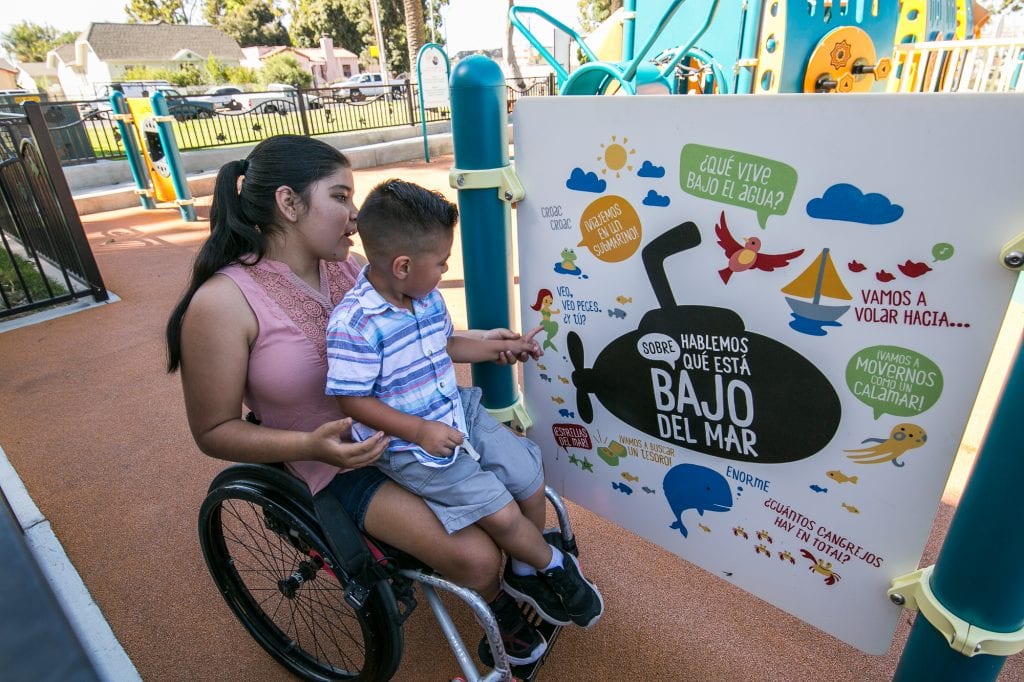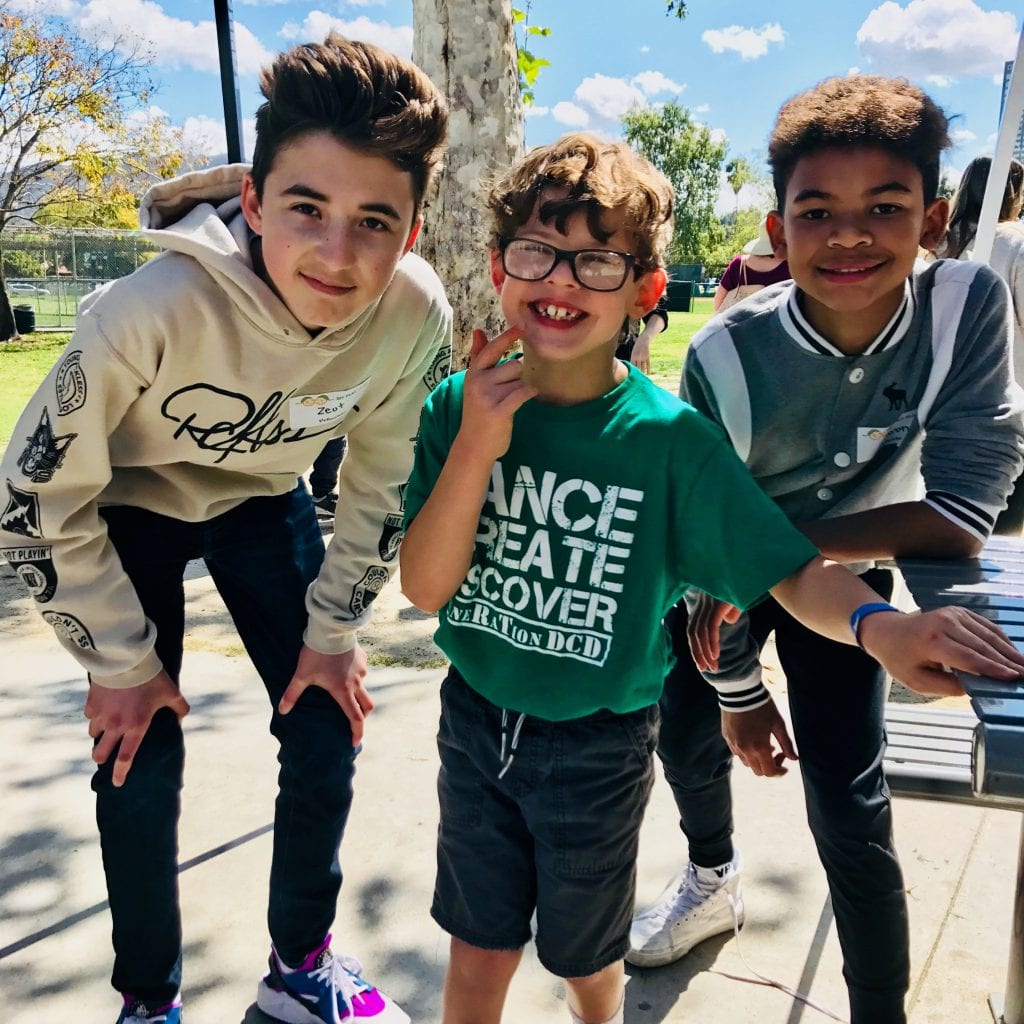
Even before COVID-19, families with children who have physical disabilities faced challenges and isolation in daily life. The pandemic has exacerbated those challenges.
Fortunately, experts and organizations in the Los Angeles community are ready to help.
Josan Wright Callender is an education consultant with more than 40 years of experience teaching special education. Her focus is on social and emotional learning. What are her biggest pieces of advice for parents serving as educators in the home?
“Take an honest assessment of what your child can do and set simple goals that engage your children so that they can feel a sense of success,” she says. “If they can use their upper torso, they can practice lifting and dropping themselves into their seats. If they can’t, they can do eye rolls to practice those muscles.”
Some challenging behaviors could arise due to frustration with not being able to meet the demands and expectations of adult service providers. Callender’s suggestion: “Create an energy chart each day. How is your child feeling today? Create a way for them to verbalize what they are feeling and find a way to articulate what they are going through. It is almost like an icebreaker to determine where they are and then find out what you can do that will help rev up their engines. And give a menu of options that could give them control and [the ability to] get engaged.”
Make sure to take time throughout the day to celebrate and acknowledge your child’s successes. “Celebrate what your child is able to do and their differences,” Callender says. “Children can be taught to embrace their differences and do what they can. Just challenge that child to do the best that they can do. It actually inspires children to do more. They have a sense of inner control and a positive mindset.”

As a preschool educator and the mother of a child with a disability, Veronica Tapia offers a unique perspective. “If [my son] August were in school, I [would] have access to all the occupational and other therapies that he needs. Having to take on that responsibility as a mother is difficult,” Tapia says. “Then you add to that having other children on Zoom. It’s tough to not have a break from that, both for the parents and the children.”
Her advice is brilliantly simple: “My first thought is trying to do everything I can to combine his therapies and schoolwork. So, if you have a child with a sensory-processing disorder and you want to work with them on their senses and want to combine it with something that is educational, you can do a sensory bin with sand and use your fingers to trace letters in it. Then you can work on your letter sounds. You could use your fingers to trace numbers and work on those. There are ways to combine doing the therapy and education.”
Physical therapy for Tapia’s son, who has spina bifida, is currently focused on his walking while holding a bar or walker. At home, Tapia has to get creative. “We put stickers on the floor with different colors or different shapes and tell him to step on the red or the apple,” Tapia explains. “He takes two steps forward or three steps backward. Whatever you do, you can make it into a teaching moment.
“Childhood is all about play. That is the work of the child. When they are playing, they are learning,” she says. “So, as parents, we need to reset our brain to figure out how are they learning and how to make their play time more purposeful.”
Her advice for other caregivers in this moment? Ask for help and don’t try to do it all. “I get tired after playing all day,” she says. “I think the first thing for me was accepting that it is OK to take a break. It has taken me a long time to feel like I deserved a break.”
Tapia says communication with other family members is key.
“I think being honest with my family that I have needs too, and that I need to carve out time for myself is important,” she says. “A lot of parents see self-care as waking up at 4 a.m. so that you can have two hours to yourself. But you are sacrificing your sleep and important time of rest for your body or your mind so that you can have some me time. You’re taking from one bucket and putting it in the other. Carving that time out during the day has been a practice that I am working on.”
Marnie Norris is the senior vice president of programs at Inclusion Matters by Shane’s Inspiration, which is based in Sherman Oaks and whose vision is fostering a bias-free world for children with disabilities.























